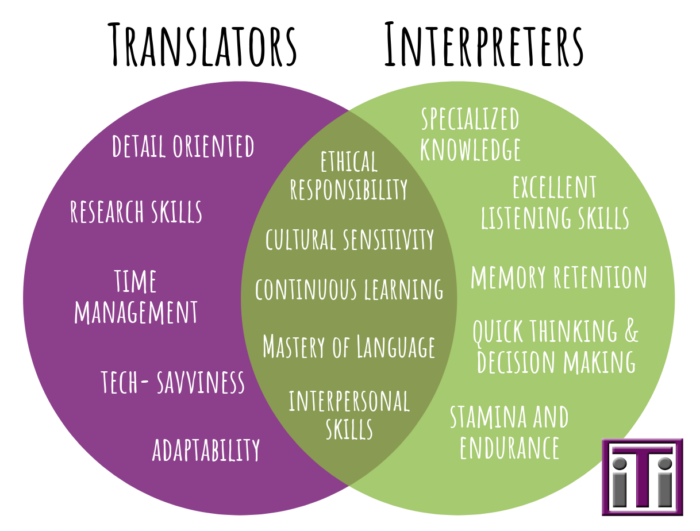Blog

How Ted Lasso Highlights the Need for Localization
Note: This post was originally published in July 2021. It’s a testament to the series’ success that a full two years after the final episode aired, it is still listed as one of the top ten watched streaming shows. Now that there has been an official announcement that a new season will start filming in…

In a world that increasingly celebrates diversity, the National Minority Supplier Development Council (NMSDC) stands as a beacon, guiding the way toward a more inclusive corporate supply chain landscape. Since its inception, the NMSDC has consistently fostered opportunities for minority businesses, ensuring their voices are heard, their services are recognized, and their contributions are valued. As we anticipate their upcoming conference, we at Interpreters and Translators, Inc., reflect on the NMSDC’s purpose, its remarkable history, and the promising agenda of this much-awaited event. NMSDC: Purpose and Mission The NMSDC is dedicated to helping minority-owned businesses grow and flourish. The council…
Read More >>Established in 1986, Interpreters and Translators, Inc. (iTi) began its journey as a court interpreting service. Through the years, legal language services remain among our core strengths, and the company has witnessed firsthand the significance of accurate interpretation in the courtroom. This article delves into the crucial role of court interpreters and the potential consequences of misinterpretation. Courts are Required to Provide Interpreters Title VI of the Civil Rights Act of 1964, entitled National Origin Discrimination Against Persons with Limited English Proficiency, requires “reasonable steps to provide meaningful language access” for limited English proficient (LEP) individuals, and this has…
Read More >>In the realm of language services, the roles of translators and interpreters often intermingle in public perception. While both play pivotal roles in bridging linguistic barriers, the skills and competencies they bring to the table include both similarities and contrasts. As a company that provides both translation and interpreting services, these are characteristics iTi looks for when contracting professional linguists. Skills and Characteristics of a Professional Translator Mastery of Language At the heart of document translation lies a deep understanding of both the source and target languages. A professional translator is fluent, but more than that, they are culturally astute, grasping not just the words…
Read More >>When embarking on a global venture, you are bound to encounter language barriers. In an increasingly diverse marketplace, professional translation services have become necessary for successful communication and marketing. But understanding the factors that can affect translation cost can be overwhelming. This article aims to demystify these costs and provide strategies for maximizing your budget. Optimizing your translation process is an investment. It not only helps control costs but also enhances the effectiveness of your global communication strategy. With the right knowledge and strategy, you can get the best value out of your translation budget. Factors Affecting the Cost of…
Read More >>In the ever-increasing global landscape, law firms and other organizations in the legal industry frequently require professional language services. Particularly in the field of legal document translation, the need for expert translators has skyrocketed. With the complexities of legal terminology and the sensitivity of the content, understanding how to translate legal documents effectively is crucial. The Unique Challenges of Translating Legal Documents Legal document translation is not just about converting text from one language to another. It demands a deep understanding of both legal systems involved, as well as the target and source languages. This process is filled with unique…
Read More >>In today’s globalized world, effective communication across different languages is a vital part of both personal and business development. Businesses and individuals seeking to communicate effectively in various languages often turn to professional translation companies for assistance. In this blog post, we’ll review six of the best translation companies available, and what sets them apart. Whether you are an individual or a business, choosing the right translation service is key to breaking language barriers. Interpreters and Translators, Inc. Connecticut-based Interpreters and Translators, Inc. was founded in 1986 and has expanded to a full-service organization that boasts Fortune 100 companies…
Read More >>You know you need an interpreter, and you have found listings for several companies that provide them. But what type of interpreter service do you need? When you are looking for professional interpreting services, it is helpful to know exactly what to ask for. You will need to determine both the interpreting style and interpreting service that is most appropriate for your particular situation. Are you conducting training for your overseas staff? Are you negotiating with a company based in a different country? Perhaps you’re hosting or giving a presentation at an international conference. With any activity that involves people…
Read More >>We’ve previously written quite a bit about the implications of artificial intelligence for translators, and we’re standing firm by our statement that, while A.I. translation has come a long way, it’s not yet a viable replacement for professional human translation. Now, let’s talk what A.I. means for the future of interpreting. The Rise of Artificial Intelligence. In recent months, “A.I.” has become one of the most searched terms on Google (which is, itself, an A.I. tool). The topic has dominated headlines since ChatGPT was released in November of 2022, and people who have been blithely chatting with Alexa since 2014 are…
Read More >>Language barriers can be a significant challenge in healthcare. Ensuring full language access isn’t just a compliance issue—it’s a fundamental matter of equity, diversity, and inclusivity. Here’s how creating a comprehensive language access plan can transform healthcare experiences for providers and their patients. Benefits of a Full Language Access Plan For many healthcare organizations, the goal of creating a true language access plan is more than just desirable — it’s essential. Compliance with Legal Standards The Americans with Disabilities Act (ADA) Offering medical interpreting services, such as American Sign Language (ASL) interpreters, is integral to complying with ADA requirements. Providing…
Read More >>What should you take into consideration when choosing a provider to provide professional translation services? Here are some steps and factors to consider before deciding on a Language Services Provider (LSP). Get Organized Put together a list of the types of language services you’ll need, and use it to create a document you can share with the LSPs you interview. This will help both you and the LSP accurately evaluate how their services will meet your needs. Some items to include are: 1. The type of internal support and knowledge your company has for working with an LSP. Do you have…
Read More >>









